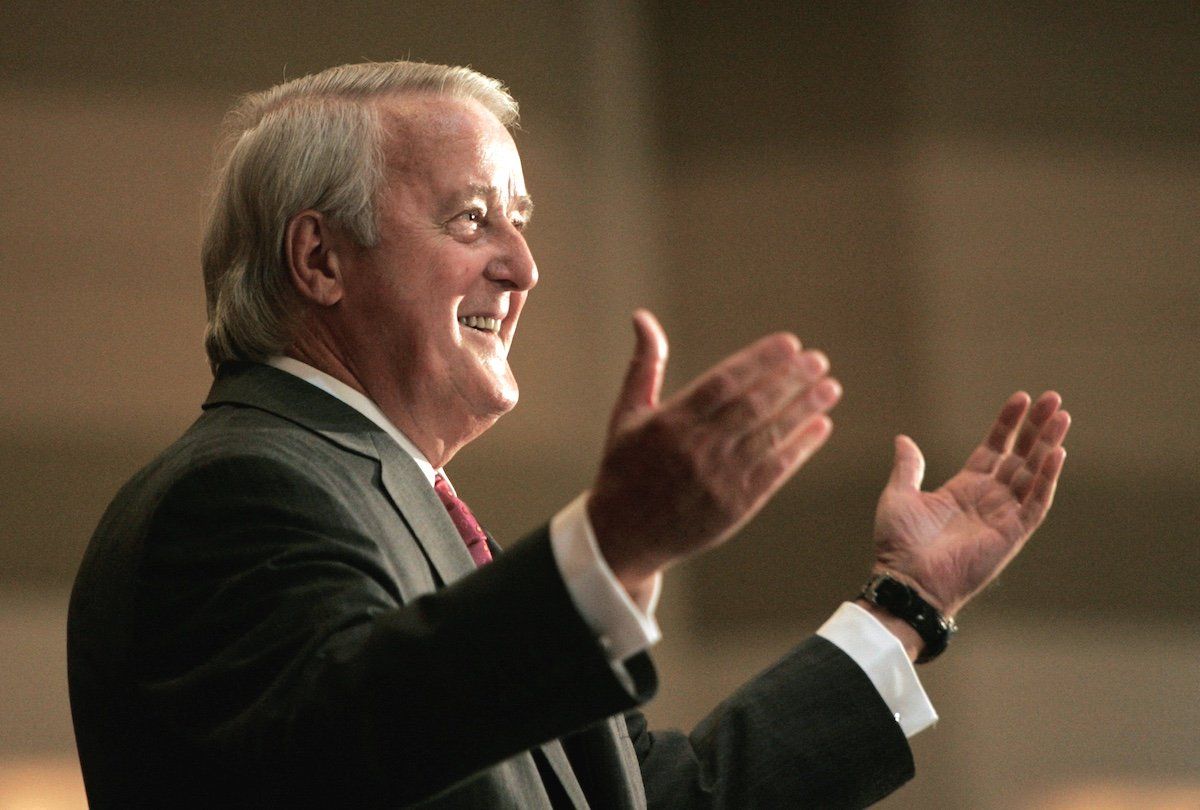Americans don’t pay much attention to Canadian politics for the simple reason that they are a less exciting version of what is going on in the US – with added snow.
However, the passing of former Prime Minister Brian Mulroney at the age of 84 has prompted a flood of glowing obituary articles in many American media outlets. Politico’s headline referred to Canada losing its “Washington Whisperer” – a man who gave eulogies for not one, but two former US presidents – Ronald Reagan and George H.W. Bush.
In 2004, at Reagan’s state funeral, Mulroney said the late president possessed a “rare and prized gift called leadership.” At Bush’s funeral in 2018, he said every head of government who dealt with the former president knew they were dealing with “a gentleman, a genuine leader, one who was distinguished, resolute and brave.”
Canada’s 18th prime minister spent much of his time in office strengthening the ties with the US, efforts that culminated in the Canada-U.S. free trade agreement (which later broadened to include Mexico as the North American Free Trade Agreement).
Mulroney became a valued friend of Reagan, with the two men of Irish heritage singing “When Irish Eyes Are Smiling” with their wives at a 1985 meeting in Quebec City, which became known as “the Shamrock Summit.”
Mulroney’s popularity did not always prosper domestically because of his friendships. He was succeeded by Liberal Prime Minister Jean Chrétien, who was once caught on a hot microphone telling Belgium’s prime minister that he liked to stand up to the Americans: “It’s popular … people like it, but you have to be careful because they’re our friends.”
Mulroney had no truck with such posturing and would reap the rewards of his close relationships by being able to speak frankly to his US counterparts at crucial moments.
During free trade negotiations, the clock was ticking down on a deadline, with Canada’s red line issue – an independent dispute resolution mechanism – still unresolved. Mulroney called Reagan and asked how the US had been able to strike a nuclear arms reduction deal with the Soviets yet could not get a free trade deal with their best friend over the line. Reagan subsequently instructed his negotiating team that the dispute resolution mechanism had to be included.
When George H.W. Bush politely told Mulroney that the Europeans were tired of Canada speaking up on the future of Europe, Mulroney’s notes of the call revealed he told Bush: “Tell the Europeans we’re not renting our seat in Europe. Tell them to go to the graveyards in France, Italy, and Belgium. We’ve paid for our seat.” Bush was so moved by the response he referred to it in his memoir.
After he introduced a national sales tax in 1991, Mulroney’s approval rating plummeted. “Popularity is bad for you. I try to avoid it like the plague, and I’ve been reasonably successful,” he joked.
Yet, his political opponents kept the tax in place, and it now yields a tenth of all revenues.
Former President George W. Bush issued his own tribute to Mulroney last week, saying he was “a great man … smart, charming, funny and kind.”
Anthony Wilson-Smith covered Mulroney for many years as a reporter and wrote a touching tribute in Canada’s Policy magazine. “Mulroney was most beloved and trusted by those who knew him best,” he said, feelings that reflected his regular acts of “quiet kindness.”
Mulroney will be laid to rest in Montreal on March 23, and it is expected that some senior American public figures will attend.
He was a consequential, transformative leader, as the outpouring of appreciation on both sides of the border shows.
